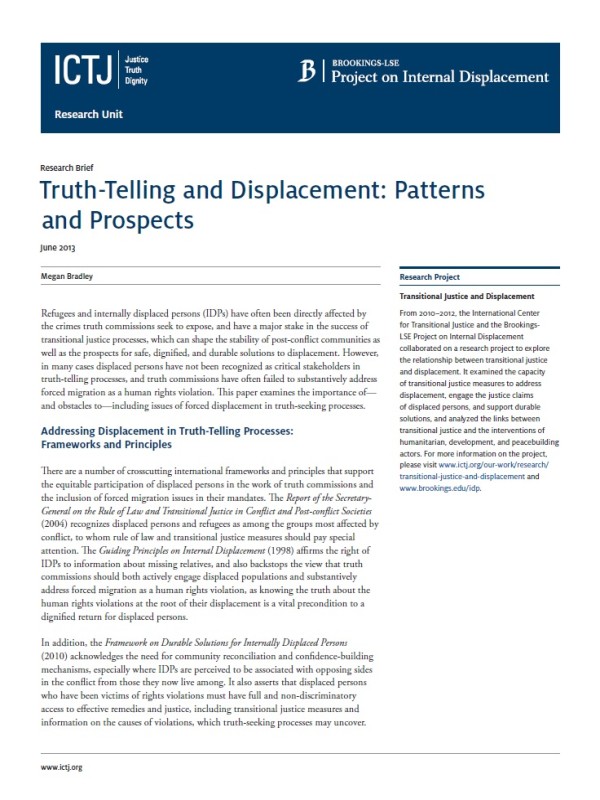Refugees and internally displaced persons (IDPs) have often been directly affected by the crimes truth commissions seek to expose, and have a major stake in the success of transitional justice processes, which can shape the stability of post-conflict communities as well as the prospects for safe, dignified, and durable solutions to displacement. However, in many cases displaced persons have not been recognized as critical stakeholders in truth-telling processes, and truth commissions have often failed to substantively address forced migration as a human rights violation. This paper examines the importance of—and obstacles to—including issues of forced displacement in truth-seeking processes.
Truth-Telling and Displacement: Patterns and Prospects
Refugees and internally displaced persons (IDPs) have often been directly affected by the crimes truth commissions seek to expose, and have a major stake in the success of transitional justice processes, which can shape the stability of post-conflict communities as well as the prospects for safe, dignified, and durable solutions to displacement. However, in many cases displaced persons have not been recognized as critical stakeholders in truth-telling processes, and truth commissions have often failed to substantively address forced migration as a human rights violation. This paper examines the importance of—and obstacles to—including issues of forced displacement in truth-seeking processes.
